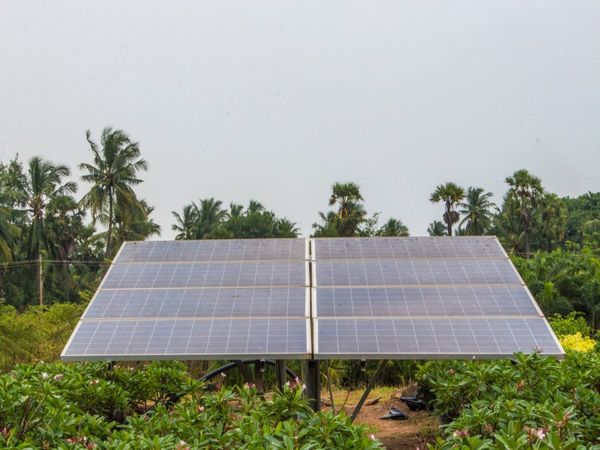Lower-input of fossil fuel dependant resources and the use of renewable energy in Agriculture can help us reduce energy consumption and mitigate climate change.
- Crop rotation is one of the most sustainable agricultural strategies.
- Renewable sources of energy should be used for powering agriculture.
- Another strategy to reduce GHG emissions from agriculture is to optimise tillage.
New Delhi: The agricultural sector is one of the largest emitters of greenhouse gases that trap heat and cause climate change. Conversely, climate change affects crop yield. Smart agricultural practices can enhance climate change mitigation and ensure sustainability. Below are five such environment-friendly agricultural practices.
- Organic farming:- Organic farming optimises energy and nutrient cycles in agro-ecosystems. Nitrous oxides and methane emissions from agriculture can be avoided by organic practices. It is scientifically proven that organic fertilisation of soil is increasing it’s organic carbon content and thus, sequestering enormous volumes of atmospheric CO2. Lower GHG emissions from farming and enhanced process of carbon sequestration can help us mitigate climate change.
- Crop rotation:– Crop rotation is one of the most sustainable agricultural strategies. It involves cultivating different types of crops in the same field in sequential seasons. Leguminous crops such as pulses, cover are grown after the cereal crops like wheat, rice etc. Legumes have nitrogen-fixing bacteria Rhizobium on their root nodules. It converts atmospheric nitrogen into ammonia, which then acts as an organic fertilizer for crops. It reduces the use of chemical fertilizers on farms and supports the long-term fertility of soil.
- Renewable energy to power agriculture:- As per FAO, food systems presently account for 30 per cent consumption of the world’s available energy, and the contribution of energy from the agri-food chain generate 35 per cent of total GHG emissions. Hence, renewable sources of energy should be used for powering agriculture. For example, solar energy can be used for powering irrigation water pumps, drying grains and crops and lightning farms.
- Tillage management:- Another strategy to reduce GHG emissions from agriculture is to optimise tillage. Tillage refers to the mechanical agitation of soil to prepare it for crop production. Overturning, digging and stirring are various types of tillage operations. Reduced tillage means fossil fuels consumption is less. This, in turn, reduces GHG emissions from agriculture.
- Agroforestry:- This technique involves growing woody perennials (trees and shrubs and crops on the same land. It is a highly productive and sustainable land use approach as it brings numerous economic and environmental benefits.
Article Credit: timesnownews
